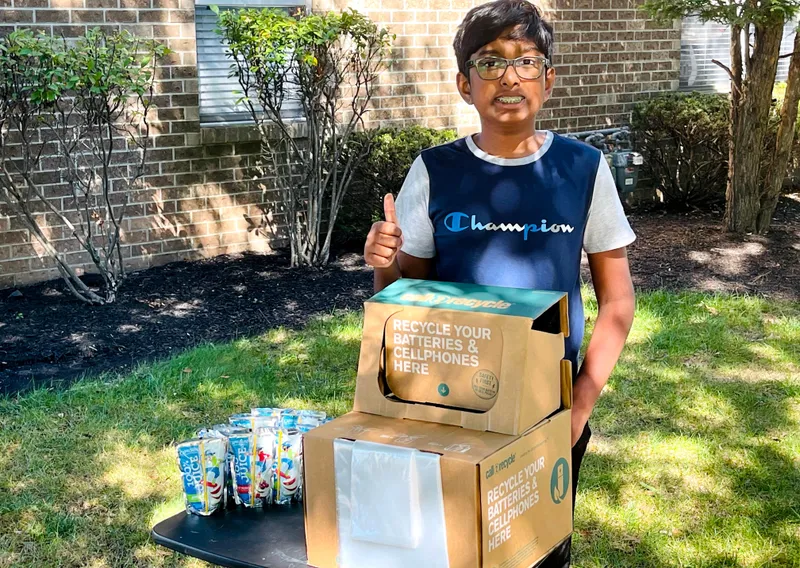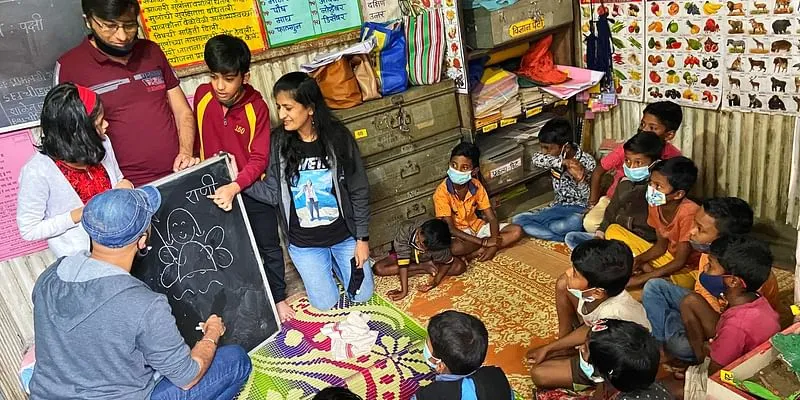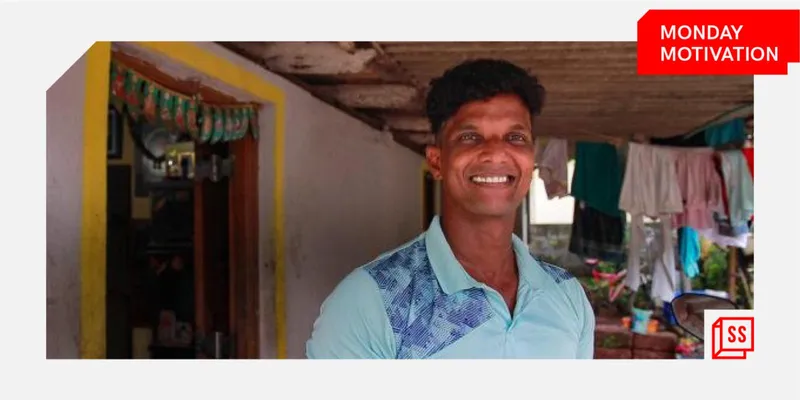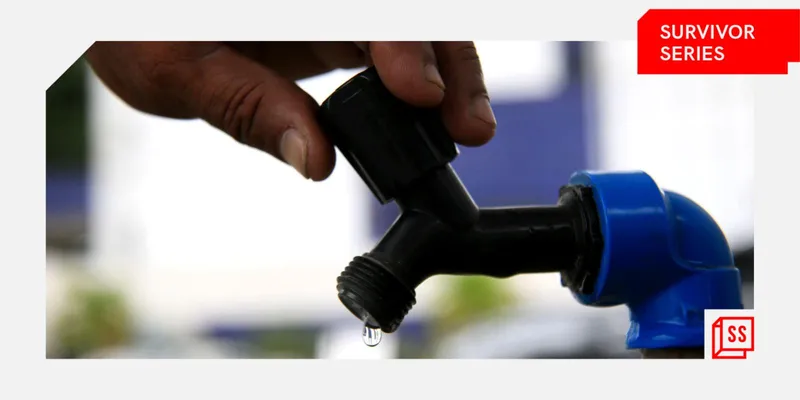From recycling 1.5 lakh used batteries to donning costumes to help ill children: top Social Stories this week
This week, SocialStory interacted with 12-year-old Sri Nihal Tammana, who started an NGO, Recycle My Battery. We also spoke to Komali Vundavalli, a class 10 student, who used her education to solve the groundwater scarcity problem in her village.
From children to adults, all are contributing in their own way to make the world a better place to live. This week, SocialStory interacted with 12-year-old Sri Nihal Tammana, who started an NGO, Recycle My Battery. We spoke to Komali Vundavalli, a class 10 student, who used her education to solve the groundwater scarcity problem in her village.
We also spoke to Ravi Katapadi who dons different costumes to help raise money for children and saw how SaaS startup Icertis is encouraging its employees to volunteer for social work through its Seven Days of Humanity’ initiative.
This 12-year-old’s NGO has recycled over 1.5 lakh batteries to make Earth a better place
Entrepreneurship knows no age, and Sri Nihal Tammana proves that right. For the past three years, 12-year-old Nihal has been working to rid the world of battery pollutants to make it safe from fires.
An Indian-American, Nihal founded in 2019. The US-based NGO aims to promote and facilitate recycling through safe disposal and educating others about the process.

Nihal with the battery bin
To date, he and his 150+ team of young kids have recycled over 1,50,000 used batteries and educated over 1.5 million people on the importance of recycling used batteries.
Recently, Recycle My Battery tied up with the Telangana government and battery making company Aloe Ecell for its operations in India.
Good deeds: How Icertis encourages its workforce to volunteer for social work
SaaS company Icertis believes in the importance of giving back to the communities “where we live, work, and play.”
Last year, the US-based company doubled down on its commitment to take care of its communities amidst the COVID-19 pandemic and the protests over racial discrimination in the US. While Icertis initially focused on supporting vulnerable communities around, it soon realised that it was not enough.

Icertians helping children
In early 2020, it launched the ‘Seven Days of Humanity’ initiative, where it granted Icertis’ employees (also known as "Icertians”) a week of paid time off (PTO) each year to volunteer for a cause or organisation of their choice.
This volunteer time is in support of anti-racism activities, and Icertians at every level have used the benefit to volunteer, support, help, give, and protest.
How this ‘costume man’ from Udupi saves sick children
Udupi, a coastal district in Karnataka, is known for celebrating the festival of Sri Krishna Janmashtami with grandeur. Every year, on the day of the festival, many vibrantly dressed troupes take part in the celebration and collect small amounts of money for their art from locals.

Thirty-seven-year-old construction worker, Ravi Katpadi, a resident of Katpadi, a town near Udupi, is part of one such troupe. However, Ravi has been using the occasion to raise money to help underprivileged children.
Ravi has been donning amazing costumes since 2013. He dons peculiar disguises, entertains people, and collects money, all for the education and health of poor children and people.
STEM classes helped me solve the issue of groundwater scarcity in my village

I am Komali Vundavalli, a class 10 student from Zilla Parishat High School, Ponnekallu, Guntur.
There has been a growing problem of groundwater scarcity in my village. I have read how India has compelled the need for rainwater harvesting and how these practices are now widely used and encouraged within communities to gain access to clean water easily and for free.
In the STEM for Girls programme, we were often encouraged to explore science and become problem solvers. Observing the problems around my village, I decided to reuse rainwater.
Through these classes, I have learned to use design thinking methods to explore how rainwater can be purified and used in domestic applications. I also examined how rainwater harvesting can be used to improve food production and water supply in my village through sustainable agriculture.
Edited by Suman Singh






![[Funding alert] Agritech startup WayCool raises $25M in equity led by 57 Stars LLC](https://images.yourstory.com/cs/2/f02aced0d86311e98e0865c1f0fe59a2/angel-investments-1629910387329.png?mode=crop&crop=faces&ar=1%3A1&format=auto&w=1920&q=75)